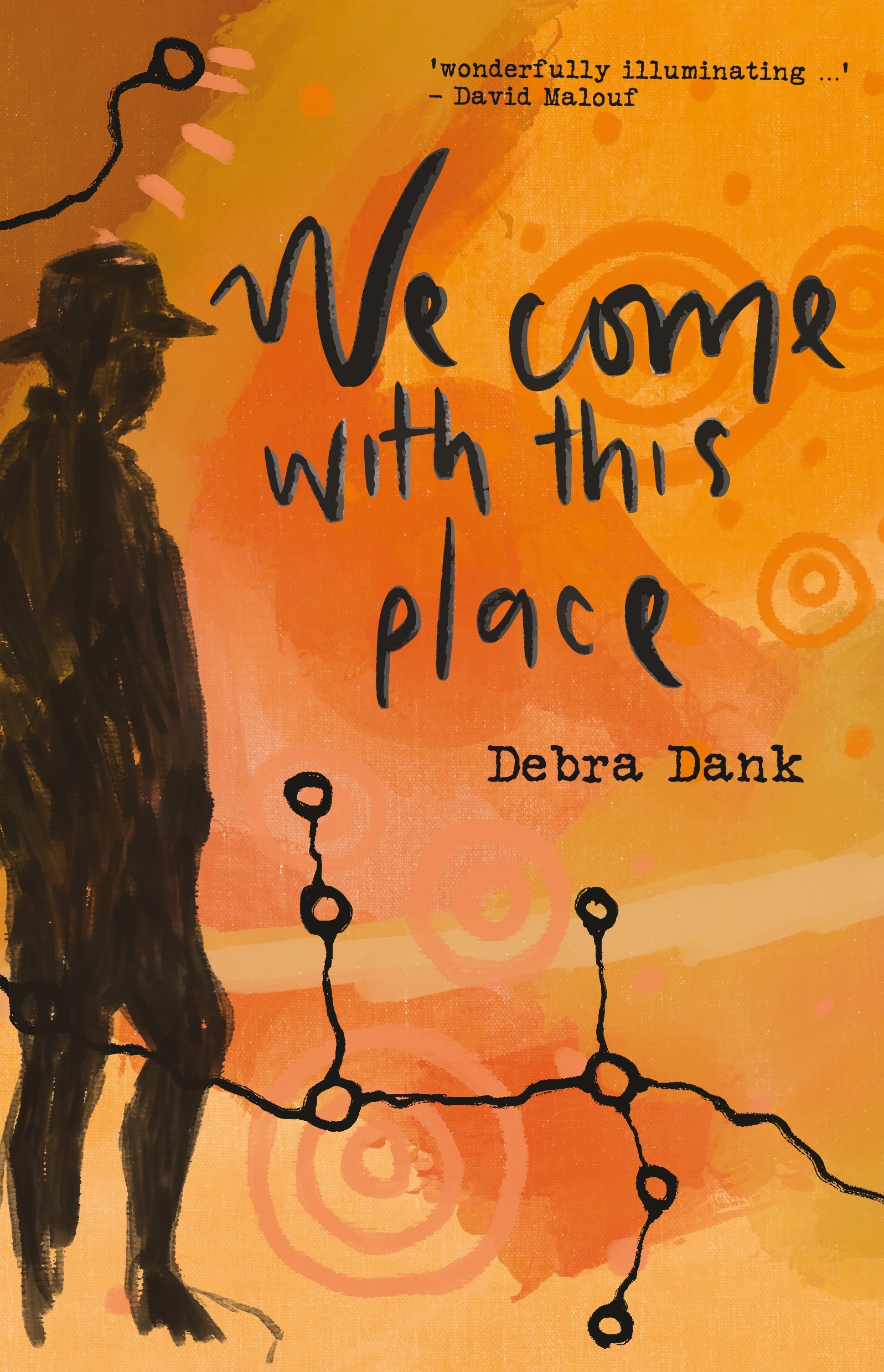Read on for an extract from a memoir, We Come with This Place by DEBRA DANK
ABOUT THE BOOK

We Come with This Place is a remarkable book, as rich, varied and surprising as the vast landscape in which it is set. Debra Dank has created an extraordinary mosaic of vivid episodes that move about in time and place to tell an unforgettable story of country and people.
There is great pain in these pages, and anger at injustice, but also great love, in marriage and in family, and for the land. Dank faces head on the ingrained racism, born of brutal practice and harsh legislation, that lies always under the skin of Australia, the racism that calls a little Aboriginal girl names and beats and rapes and disenfranchises the generations before hers. She describes sudden terrible violence, between races and sometimes at home. But overwhelmingly this is a book about strong, beloved parents and grandparents, guiding and teaching their children and grandchildren what country means, about joyful gatherings and the pleasures of eating food provided by the place that nourishes them, both spiritually and physically.
Dank calibrates human emotions with honesty and insight, and there is plenty of dry, down-to-earth humour. You can feel and smell and see the puffs of dust under moving feet, the ever-present burning heat, the bright exuberance of a night-time campfire, the emerald flash of a flock of budgerigars, the journeying wind, the harshness of a station shanty, the welcome scent of fresh water.
We Come with This Place is deeply personal, a profound tribute to family and the Gudanji Country to which Debra Dank belongs, but it is much more than that. Here is Australia as it has been for countless generations, land and people in effortless balance, and Australia as it became, but also Australia as it could and should be.
EXTRACT
In those early days, they came to get me. Someone, I can’t remember who, told me that I was also ‘under the act’ because my dad was and that he and I were aliens in Queensland, illegals. I was also told that several times it had been Mum’s mother who had alerted the authorities to our whereabouts, so they knew how to find us. And there was a time that my dad was threatened with jail because of my birth.
Mum was incredibly young, you see. In her family, when I was little, I remember a lot of tension. It wasn’t personal, it was never about me, just that she had given birth to a child and my dad was a myall. My dad provided for Mum and me, just as he was expected to. He did it because there was love between Mum and Dad, but the police, who acted in place of the ‘protector’, were sent messages about our family when we were in town, and then they came.
… my mum was part of the choir of Aboriginal girls, ‘little half-caste lasses’, who sang for the ladies who ate those scones.
Mum’s grandmother, my nanna, always supported both Mum and Dad, but Mum’s mother – not so much. If she had reported us, maybe she did so out of fear; I certainly don’t know. It’s an unspoken thing that’s ignored by those in Mum’s family who know. They claim ignorance and being shocked, but it’s always sitting in the corner of hearts and conversations, and it gnaws into relationships, changing their shape.
My growing was done with a distancing between me and my maternal grandmother because I was a child of that time, and though I was seen and never heard, I absolutely saw. I could never be comfortable with her treatment of my parents. I eventually made my peace with Mum’s mother by accepting I had no way of knowing her story well enough to understand her behaviour, and we eventually developed a good and easy relationship, but it didn’t happen until I had reached adulthood and had my own children. Then I could find a way to accept we all have our failings, and I have plenty too.
In those days, Mum’s family lived in a tightly knit and isolated little community where people worked hard and kept out of other people’s business. They worked hard to merge into the community and perhaps that was their protection. And we went to Sunday school at the Methodist church and observed the Catholics as unobtrusively as they observed us.
After the Sunday services of fire and brimstone in straight-backed pews, and when collection plates had been fed, the men retired to have a quiet drink and the ladies did whatever it was that ladies did on the rest day. I think perhaps the Country Women’s Association cooked scones sometimes for after church and though the women in my family then were never invited to join the local CWA, before I was born my mum was part of the choir of Aboriginal girls, ‘little half-caste lasses’, who sang for the ladies who ate those scones.
Mum’s family had a tough life, and mostly it was like everyone else’s life, but they cultivated a level of mediocrity that gave them some invisibility and protected them from the harsher reality experienced by darker skinned Aboriginal people. Still, I think it was a fragile protection. And it was too hard for me to exist in that identity twilight. I struggled to find a place of equilibrium, where I understood who I was. My dad solved all those issues for me.
On the day, when I was about seven or eight years old, I noticed absolutely that Aboriginal people were treated differently from others, I asked Dad why it was so. He answered simply that people were like that now. He said we were black, and I should just get on with the things that mattered, so I did.






